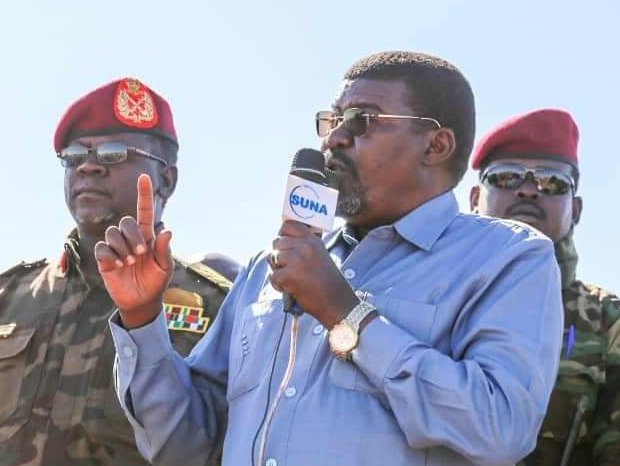Sacked Sudan Sovereignty Council member rejects ‘illegal dismissal’

Dismissed member of Sudan’s Sovereignty Council El Taher Hajar (File photo: SUNA)
Dismissed member of Sudan’s Sovereignty Council, El Taher Hajar, asserts that his dismissal has no constitutional or legal basis, and has called for an urgent meeting of the nine members of the Sovereignty Council who have been relieved of their portfolios by junta chief Lt Gen Abdelfattah El Burhan.
In a statement yesterday, Hajar says that he does not recognise the decision to dismiss him from the Sovereignty Council issued by El Burhan on Friday, and calls on the nine members of the Council who were relieved since the October 25 2021 coup to an urgent meeting of the Sovereignty Council, in order to “bear the national responsibility to stop the war.” Hajar asserts that the dismissal decision” has no constitutional or legal basis”.
The decision by the junta to dismiss Hajar is the second of its kind among the parties to the Juba Peace Agreement (JPA), following the recent dismissal of El Hadi Idris, who is also leader of the Sudan Liberation Movement-Transitional Council (SLM-TC) faction and head of the Sudan Revolutionary Front (SRF) rebel alliance. The decision comes after Hajar, head of another SLM split-off group, announced his commitment to neutrality and his refusal to side with the SAF.
As previously reported by Radio Dabanga, at a press conference in Port Sudan on Thursday, the participating parties, including Minni Minawi and Jibril Ibrahim, announced the abandonment of neutrality and participation in military operations alongside the SAF.
Hajar said in the statement that the decision to dismiss him is contrary to the Constitutional Document and the JPA, noting that it exposes this accord to the risk of complete collapse, which leads to serious political and security repercussions that affect stability in the country.
He described El Burhan’s decisions as “constitutional tampering” and that “they aim to divide the parties to peace and create strife and discord between them”. He considered it a response and implementation of the agenda of the former regime, which he said is now writing and signing in the name of the president of the Sovereignty Council.











 and then
and then